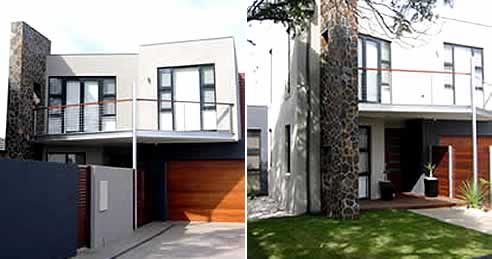NEWS ARTICLE ARCHIVESMasterwall - Polystyrene cladding standards? The industry waits As awareness of the benefits of polystyrene cladding, otherwise known as Exterior Insulation Finish Systems (EIFS), grows among owners, builders and architects the lack of compliance to key performance criteria within the BCA is becoming more apparent. In the United States the ANSI/EIMA 99A-2001 American National Standard for Exterior Insulation and Finish Systems (EIFS) is one of the standards which ensure the functionality and quality of cladding components and systems. In NZ, all EIFS manufacturers and suppliers must have their systems independently appraised under the NZBC and submit appraisal certification to councils with plans at permit stage. In Australia, the Building Code states that in the absence of a "deemed to satisfy" provision, manufacturers of building products must supply documentary evidence to demonstrate compliance to key performance requirements within the BCA. One company, MasterWall, who manufacture, supply, install and render EIFS not only voluntarily complies with overseas standards but has taken further measures to ensure the quality and performance of their system meets the BCA Requirements. MasterWall has had their EIFS tested by CSIRO to ensure compliance with the Building Code of Australia. The appraisal demonstrates the systemís performance in key areas including ability to withstand adverse loads, water penetration and leakage and fire resistance, as required under the BCA. All EIFS must be submitted for independent testing. If this can not be demonstrated by a supplier then their materials should not be specified or used in a project. As a multilayered exterior wall cladding system, EIFS offer superior energy efficiency, design flexibility and ease of installation to many alternative products. However in the absence of an applicable Australian Standard, owners and builders wishing to take advantage of the benefits of EIFS should do their homework to ensure the system they are using will deliver the endurance and performance they expect. It is important to remember that EIFS is a system and that the components should be selected not only for their individual attributes, but for their ability to perform effectively and efficiently with other components A typical EIFS comprises a range of components:
It's worth noting that even the best components will not create a quality result unless they are installed strictly in accordance with instructions and by experienced tradespeople. The well-known 'leaky house' syndrome in New Zealand occurred largely because of incorrect installation of cladding. So what's the bottom line? EIFS have a lot to offer which is why they are becoming increasingly popular in residential construction - however the onus is on builders/owner builders to ensure that their choice of materials and installation processes will deliver all the advantages.
|
 |
 |